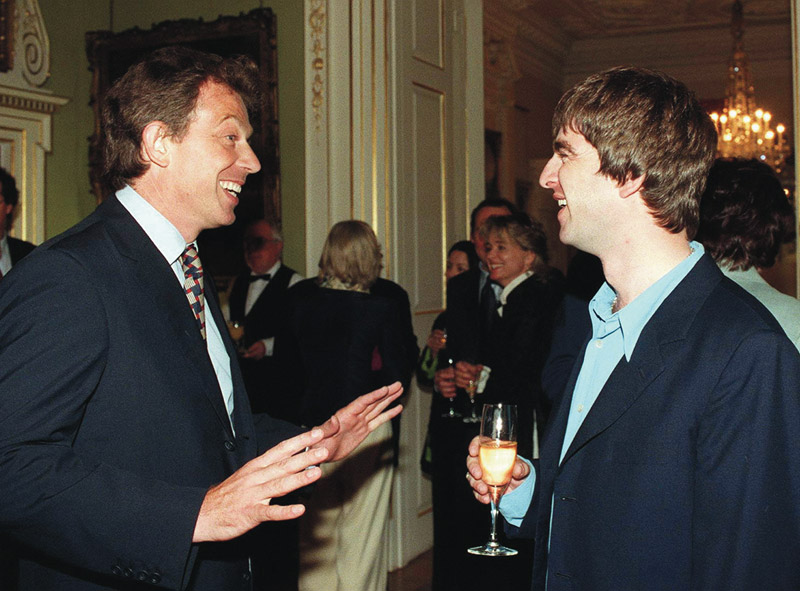
The Hubris of a Pop Prime Minister
From Planet 225
In the second of two articles taking a long view on the Chilcot Report and the ongoing catastrophe emerging from the ‘War on Terror’, John Barnie examines how Blair’s desire for celebrity status fed into the decision to go to war.
There can be little doubt that the UK’s involvement in the invasion and occupation of Iraq was down to one man, Tony Blair. International opposition to military action against Saddam Hussein was strong. It was not merely a question of Russia and China, who could be expected to oppose American aggression in the Middle East. Major European allies of the US, notably Germany and France, also refused to endorse ‘regime change’, despite Blair’s best efforts at ‘shuttle diplomacy’ to persuade them otherwise. What made him persist, dragging Britain into a war which was hugely unpopular at home as well as internationally? Approximately one million people demonstrating against the war in London and many more in cities and towns across the UK ought to make a politician stop and think. With Tony Blair, it only hardened his determination to back the Bush regime’s aggression, propelling Britain into a military adventure whose disastrous consequences are with us still.

Tony Blair and Noel Gallagher at 10 Downing Street, 1997. © REUTERS/Alamy Stock Photo
In his autobiography, A Journey, Blair says, ‘I choose words carefully’. In fact he does no such thing. The book is so badly written it must be one of few political memoirs in recent times not to have had the benefit of a ghost writer. Ill-chosen words, however, can be unintentionally revealing, as when in his Note of 28 July 2002 to George W. Bush, he promised, ‘I will be with you, whatever’. The intimate address from one individual to another is a clue to the deeper motivation of Tony Blair – for him, it is personal; while ‘whatever’, poised after the comma, hints at a gambler’s recklessness, a willingness to risk everything on a throw of the dice.
Sign in to read moreAbout the author
During 2016 John Barnie was one of three poets in residence at Oxford University Museum of Natural History. An anthology of poems written by the poets during the year, together with poems by Pre-Raphaelites associated with the Museum, Guests of Time, was published by Valley Press in December. His latest collection is Wind Playing with a Man's Hat(Cinnamon, 2016).
